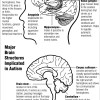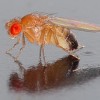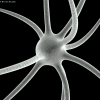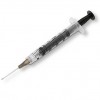Autism and Marijuana
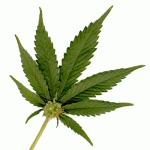 This morning, “Good Morning America,” a popular morning news program in the U.S. told the story of a mother with an autistic child who was “treating” him with marijuana. I use quotation marks, and will make other cautionary notes here, because this blog is not meant to represent any forum of medical advice.
This morning, “Good Morning America,” a popular morning news program in the U.S. told the story of a mother with an autistic child who was “treating” him with marijuana. I use quotation marks, and will make other cautionary notes here, because this blog is not meant to represent any forum of medical advice.
At the time of writing this, the GMA website, which usually posts follow-ups, has nothing on their site, which I found a little strange. The mother also appeared not with another member of her family, but a lawyer, who was also a family friend. I wondered how these unusual, but small anomalies reflected on modern society’s schizoid views on drugs. I certainly do not approve of “drugs”, the term which brings to mind things like cocaine, methamphetamine, or marijuana. It should also however bring to mind things like coffee, chocolate, and aspirin. Marijuana is a Schedule I drug in the U.S., which, according to definition, means it has no medical use. This is interesting since there has recently been quite an effort to promote so-called medical marijuana. So really our question should be what is a medicine?
In theory a reasonable definition might have medicine as being some sort of foreign substance that effects treatment of disease. Autism is certainly a disease, but is there any evidence that marijuana can “cure” autism? Without doing any research, we should already be skeptical that the answer could possibly be yes.
For one thing, autism is really a spectrum disorder. That means that there may be many causes, both genetic and environmental that produce the constellation of symptoms we call autism. If a doctor were treating you for cancer, he would first have to know whether it was brain cancer or skin cancer to choose a proper treatment. There are certainly anecdotal sources like this GMA news story, but also other places on the Internet that will tell you that someone has cured their child with marijuana brownies, but do you really know that that child was diagnosed with autism? How can a parent know if the supposedly cured child has the same etiology (same cause of the disease) as their own child? Marijuana, or at least its active component, THC, certainly has a psychotropic affect, as it interacts with cannabinoid receptors in the brain. Can this mean that somewhere somehow marijuana can have some unrecognized benefits for autistic individuals? At this time, there simply is insufficient information to come to a conclusion.
You can certainly understand the desperation of any parent who wanted to get the best treatment possible for their child. While the American Pediatric Society continues to oppose medical marijuana, they are in favor of at further investigation into its applications as a drug. Until then, even so-called medical marijuana is still illegal under federal and most state laws. Hopefully however, if a clinical application for autism is found, stigmas about the idea of marijuana as a “drug,” will not hinder scientific debate and progress.
| Print article | This entry was posted by Jason Williams on November 30, 2009 at 11:20 am, and is filed under G2C Online. Follow any responses to this post through RSS 2.0. You can skip to the end and leave a response. Pinging is currently not allowed. |

